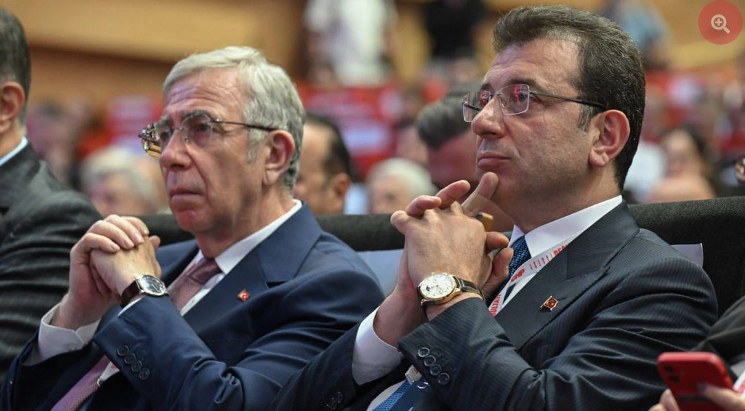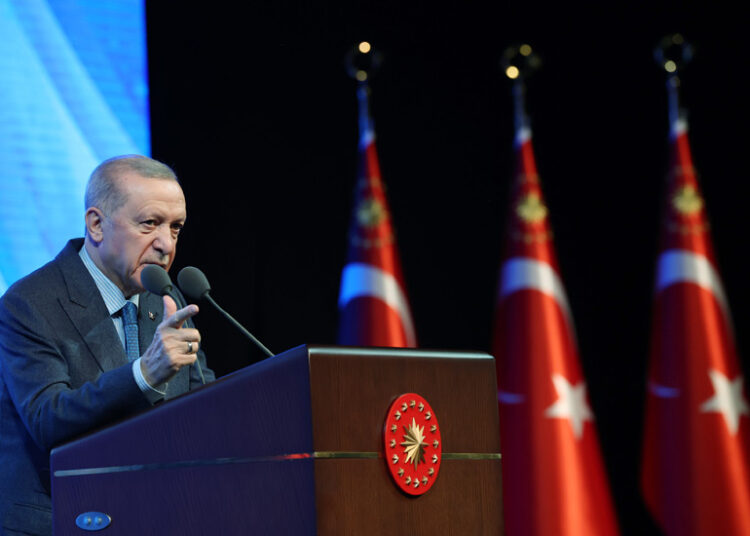Levent Kenez /Stockholm
A new law expanding the powers of Turkey’s State Supervisory Council (DDK), an institution directly linked to President Recep Tayyip Erdogan, was passed by the Turkish Parliament on January 30 and approved by Erdogan on February 4, thus coming into force. This controversial legislation grants the DDK the authority to suspend public officials at all levels, raising concerns about potential political interference ahead of a future presidential election.
The opposition Republican People’s Party (CHP) has announced plans to challenge the legislation in the Constitutional Court, citing concerns that it allows for arbitrary dismissals and undermines democratic accountability. However, the Constitutional Court, where a majority of members have been appointed by Erdogan, has long been acting as a political institution, far from being a reliable and impartial court.
Under the new law, the DDK is now authorized to conduct administrative investigations, audits and research of NGOs, foundations, cooperatives, unions and their affiliated entities. Inspectors can demand information, correspond with institutions and prepare reports that can lead to further action, including dismissals.
The DDK’s inspectors will have powers equivalent to existing internal audit and supervisory bodies within state institutions. Furthermore, if an inspector determines that a public official’s continued presence in office could obstruct investigations, destroy evidence or harm public interests, they can recommend the official’s suspension. In certain cases, the DDK may implement the suspension directly.
Text of the DDK law, which increases Erdogan’s powers:
The opposition has expressed strong concerns, particularly regarding elected mayors, who are public officials. Critics argue that this law could serve as a tool for Erdogan to sideline opposition figures under the guise of anti-corruption efforts.
In Turkey’s southeastern and eastern provinces, Kurdish mayors have frequently been removed from office on terrorism-related charges, with governors or district officials appointed as their replacements.
More recently, CHP mayors have faced corruption probes leading to their dismissal, as seen in the case of the mayor of Istanbul’s Beşiktaş district.
However, it appears that the government is not only relying on the judiciary but also working through the DDK to remove mayors from office.
The newly enacted law carries significant implications for the next presidential election. Two of Erdogan’s most formidable challengers are opposition mayors Ekrem İmamoğlu of Istanbul and Mansur Yavaş of Ankara. Both leaders currently poll ahead of Erdogan in several surveys.
İmamoğlu faces multiple legal cases, with a conviction in December 2022 for allegedly insulting public officials. The court sentenced him to more than two years in prison along with a political ban under Article 53 of the Turkish Penal Code. His case is now under review by the 24th Criminal Chamber of the Istanbul Regional Court. If the appeal is rejected, the case will proceed to the Supreme Court of Appeals, which has the power to uphold or overturn the conviction. If upheld, İmamoğlu would lose his position as mayor and face a political ban.
Meanwhile, the pro-government media frequently highlight corruption allegations against Yavaş, particularly concerning allegedly inflated payments for municipal events. Erdogan has repeatedly referenced these claims in speeches, signaling a potential crackdown on the Ankara mayor.

With the DDK’s newly granted authority, observers warn that opposition mayors could be suspended through administrative means, with subsequent legal proceedings used to weaken their political influence. Many analysts view this move as part of a broader strategy by Erdogan to secure his position ahead of the 2028 elections by discrediting strong opposition figures.
In a January 17 speech to his party members in parliament, Erdogan signaled that operations against CHP-run municipalities would continue and hinted that these actions could extend to İmamoğlu.
If Turkey’s rate of inflation decreases as Erdogan hopes and economic recovery is achieved, there is a possibility that elections could be held earlier than scheduled. According to the constitution, Erdogan, who is currently serving his second term, would need parliament to call for early elections in order to run again. With the support of the opposition, which also favors early elections, no surprises are expected in passing the decision through parliament.
As political tensions escalate, the expansion of the DDK’s powers is seen by critics as another step toward consolidating executive control over Turkey’s institutions and marginalizing political rivals through legal and bureaucratic maneuvers.
In the March 31, 2024 local elections, the CHP secured a historic victory, marking its first time as the leading party since the 1977 general election. The ruling Justice and Development Party (AKP) came in second, its first electoral defeat in its nearly 22-year dominance. The election results reflected a significant shift in Turkey’s political landscape, with the opposition gaining momentum ahead of future national contests.












